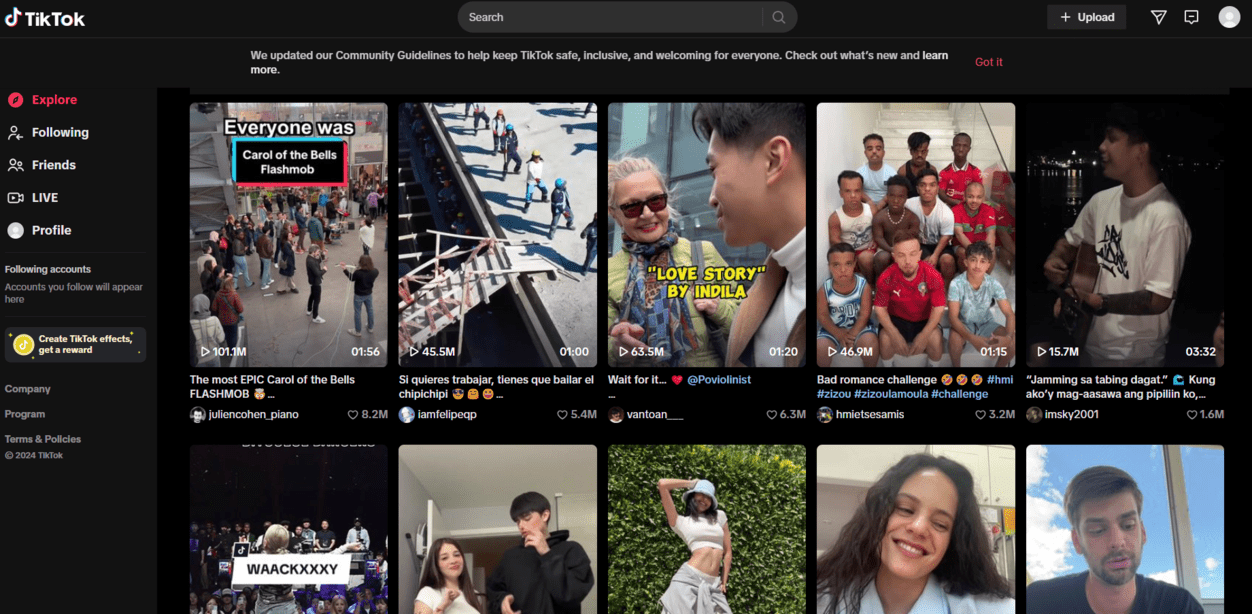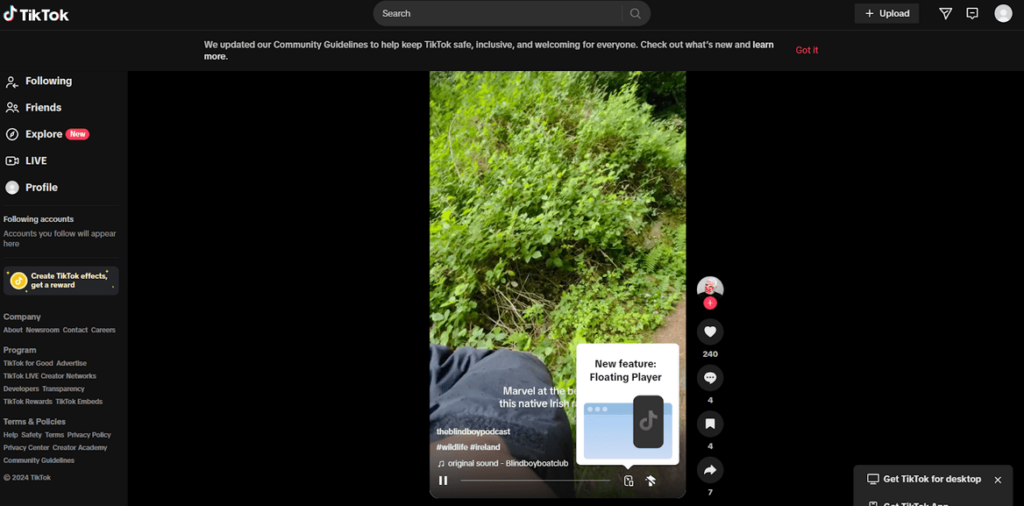Is TikTok Safe?
Laura Martisiute
Reading time: 5 minutes

Table of Contents
If you use or plan to use TikTok, you need to know: Is TikTok safe?
Below, we explain whether TikTok is:
- Safe to use.
- Good for privacy.
We also give some steps you can take to improve both your safety and privacy when using this online service.
What Is TikTok?
TikTok is a social media platform and mobile app that allows users to create, share, and discover short-form videos. These videos can be up to three minutes long and often feature music, sound effects, and various creative editing tools.

TikTok is known for its viral trends and challenges, where users create videos based on specific themes or prompts, often using the same music or hashtag. Additionally, duets and stitches allow users to interact dynamically with each other’s content.
Following its launch in 2016, TikTok quickly gained immense popularity worldwide, especially among younger audiences. Its addictive nature and the ease of creating engaging content contributed to its rapid growth.
However, the app has been a source of controversy, particularly concerning data privacy and its influence on younger users.
Is TikTok Safe?
Like any social media platform, the safety of TikTok depends on various factors, including user behavior, privacy settings, and the platform’s policies and practices.
TikTok utilizes security features such as two-factor authentication, curated content for users under 13, and comment filters to help improve users’ safety. It also partners with the cybersecurity company HackerOne to operate a bug bounty and vulnerability disclosure program.
Despite these measures, using TikTok can expose users to inappropriate content, scams, and cyberbullying.
Is TikTok Private?
Depends on your definition of “private.” In general, no social media platform is considered “private” due to the amount of personal information they collect. TikTok is no exception.
TikTok collects a substantial amount of user data, including location, device information, and browsing history.
Concerns about how this data is stored and used have been raised, particularly given that TikTok’s parent company, ByteDance, is based in China. However, according to a 2020 article from The New York Times, the CIA investigated TikTok and found no evidence that the Chinese intelligence authorities used TikTok to intercept Americans’ data.
TikTok has also repeatedly stated that it stores user data in the U.S. and Singapore to alleviate some of these concerns.
Although TikTok previously said that its staff cannot access non-Chinese user data, in 2022, it came to light that a number of Beijing-based employees did, in fact, access the data of several journalists in the US and UK to see if they were meeting TikTok employees suspected of leaking information to the media. The employees who accessed journalists’ data have reportedly since been dismissed.
As for TikTok’s privacy features, the platform enables users to pick between a public and a private account, substantially lowering the risk of unwanted exposure. You can also change the settings of individual videos when you upload them and modify who can comment on your videos, along with a host of other recommended settings for improving privacy.
TikTok has received a “Grade E” on Terms of Service; Didn’t Read (a project that rates internet services’ terms of service and privacy policies). Some of the concerns outlined are that private messages can be read, location and biometric data can be collected, and information is gathered about users through third parties.
The Common Sense Privacy Project, which looks at internet services in the context of kids’ safety and privacy, gives TikTok a 60% rating (out of 100%), which is a “Warning.” This means TikTok doesn’t meet the project’s recommendations for safety and privacy practices. Some of the issues highlighted include third parties collecting data for their own purposes and the creation of data profiles for personalized advertisements.
How to Improve Your Safety and Privacy on TikTok
Follow the below steps for a safer and more private experience on TikTok.
- Adjust privacy settings. In your personal settings, change your account to private to limit who can follow you and view or download your videos. You can also change who can comment on your videos, make duets and stitches with your videos, message you, and find you.
- Don’t include your contact information. To prevent people from finding you via contact information, avoid including your real name, address, phone number, or email in your account profile.
- Filter comments. You can enable comment filters for your posts that will filter all comments or just comments that contain specific keywords of your choosing.
- Block and report users as needed. If a user is behaving inappropriately toward you, you can go to their profile, tap the three dots, and select “Block” or “Report” accordingly to prevent them from contacting you again.
- Enable Restricted Mode. In the Digital Wellbeing section of the Settings menu, you can enable “Restricted Mode” to limit exposure to potentially inappropriate content.
- Use strong passwords. Use a strong, unique password for your TikTok account. You can also use a password manager and two-factor authentication on TikTok for an additional layer of security.
- Be cautious with third-party apps. Avoid using third-party apps or websites that request access to your TikTok account, as they may compromise your privacy.
Our privacy advisors:
- Continuously find and remove your sensitive data online
- Stop companies from selling your data – all year long
- Have removed 35M+ records
of personal data from the web
Save 10% on any individual and
family privacy plan
with code: BLOG10
news?
Don’t have the time?
DeleteMe is our premium privacy service that removes you from more than 750 data brokers like Whitepages, Spokeo, BeenVerified, plus many more.
Save 10% on DeleteMe when you use the code BLOG10.
















